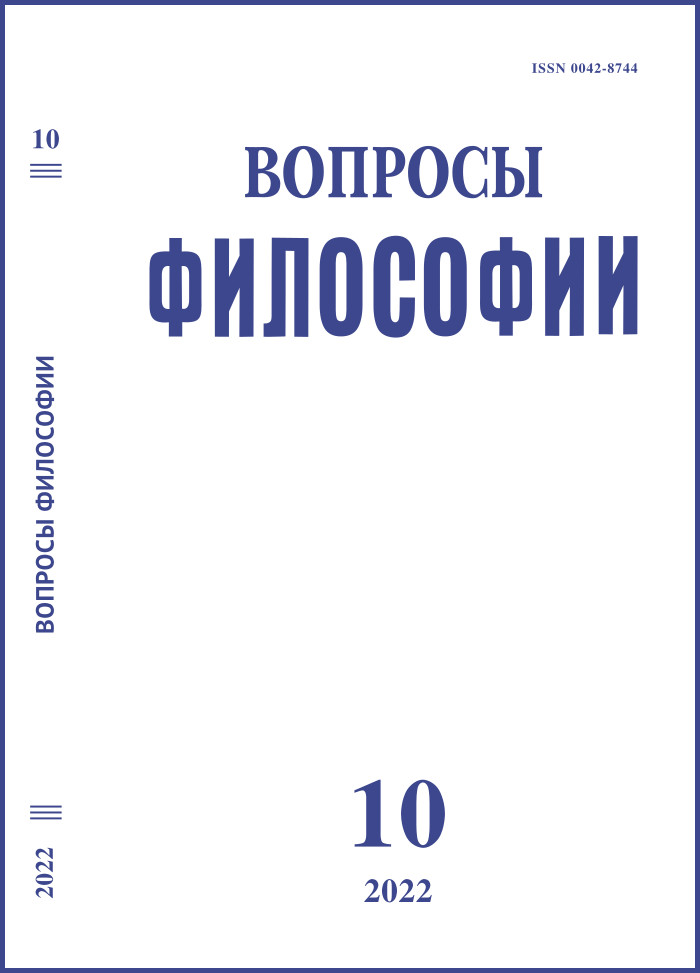Supramoral Trilogy of the Two-sided Kingdom of Shadows in the Philosophy of Cosmism (N.F. Fyodorov)
DOI:
https://doi.org/10.21146/0042-8744-2022-10-98-110Keywords:
N.F. Fyodorov, supramoralism, cosmosophy, common cause, other world, mundane world, hell, heaven, purgatory, two-sided world.Abstract
The article examines a thematic fragment of the religious and philosophical heritage of the founder of the philosophy of cosmism N.F. Fyodorov (1829–1903). In the context of supramoralism, an attempt is made to semantically reveal the religious and mythological ideas associated with the phenomena of the other world. The peculiarities of the concepts of Hell, Paradise, Purgatory, which in cosmosophy are two-sided expressions of “another being” and, at the same time, express the active-Christian principle of the ontological transformation of the world, is disclosed. The meaning of the images of the no-geographical land of Ophir and the sacred Pamir Mountain used by the thinker, is revealed. Using the logical and ethical apparatus of supramoralism, Fyodorov uncovers the extreme inconsistency of the idea of a dichotomically split structure and irreversible polarization of the other world. In the active-Christian topology of the two-sided world projected by cosmosophy, there is neither hell nor heaven, there is only purgatory. The spatial-temporal transposition of the Kingdom of Shadows used in the philosophy of the common cause acquires the meaning of the active-historical redemption of humankind, which alerts the threat of catastrophic eschatology announced by the Apocalypse.
Downloads
Published
Versions
- 2025-02-07 (2)
- 2022-10-31 (1)

